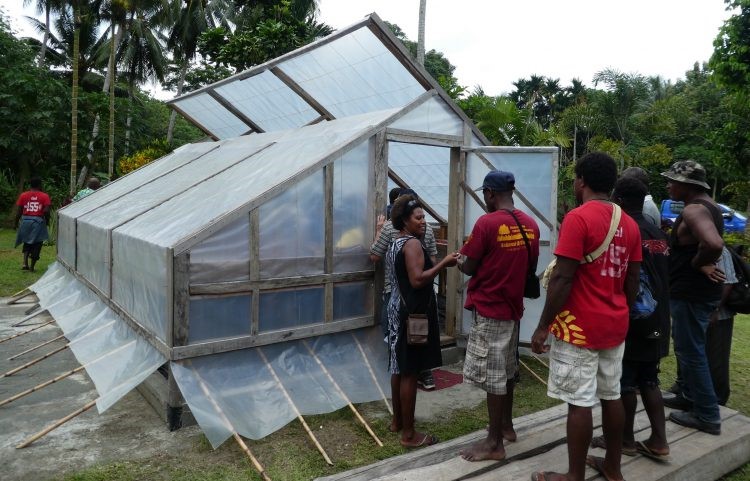Several owners of solar cocoa driers in the Solomon Islands recently attended a workshop designed to increase sales of “sun-dried” cocoa into the lucrative global boutique market.
Last week’s workshop and demonstration exercise offered valuable opportunities for cocoa farmers from five provinces to share learnings with cocoa specialists and MAL extension officers.
Lucy Kasimwane from Makira Province who attended the workshop said, “This was a great opportunity to meet with farmers from the other provinces and learn from them. We also understand better how to sell our sun-dried cocoa into higher value markets.”

The workshop is a series of continued efforts initiated by the Australia and New Zealand-funded Pacific Horticultural and Agricultural Market Access* (PHAMA) Program towards improving the quality of Solomon Islands cocoa.
More than 50 participants – including 7 women – from the provinces of Makira, Malaita, Western, Isabel and Guadalcanal attended the workshop which was facilitated in partnership with the Rural Development Program (RDP), Ministry of Agriculture and Livestock (MAL), Commodities Export Marketing Authority (CEMA) and industry partners.
Cocoa is a significant export earner for the Solomon Islands, with an average of 5,000 tonnes exported annually, generating around USD$12 million.
Following several analyses and surveys on the scope of market access for Solomon Islands cocoa, PHAMA identified that smoke contamination of cocoa beans was a limitation to increasing exports to the higher value boutique markets in the United States, United Kingdom, Belgium, Australia, New Zealand and other parts of the world.
“Sun drying” of beans was recommended as an alternative process to address this issue. The drier trials conducted in 2015 and 2016 confirmed the benefits of the-sun-dry method and they also showed that other aspects of cocoa quality are important and required the attention of farmers, particularly if they were intending to sell into the boutique market. These include:
- Proper fermentation of cocoa beans;
- Avoiding contamination of sun dried beans with smoky beans after drying;
- Appropriate storage and handling of cocoa after processing.
Solar driers have now been established at 15 locations around the country.
On-going technical training and practical support is vital for cocoa farmers to maintain quality standards throughout the process from drying to export.
Discussions also considered ways that solar drier owners can collaborate to sell their high-quality cocoa into boutique international markets – helping to meet growing international demand for high quality Solomon Islands cocoa and improving returns to growers and their families.
-ENDs-
For further information, please contact Andrew Piper at a.piper@phamaplus.com.au
